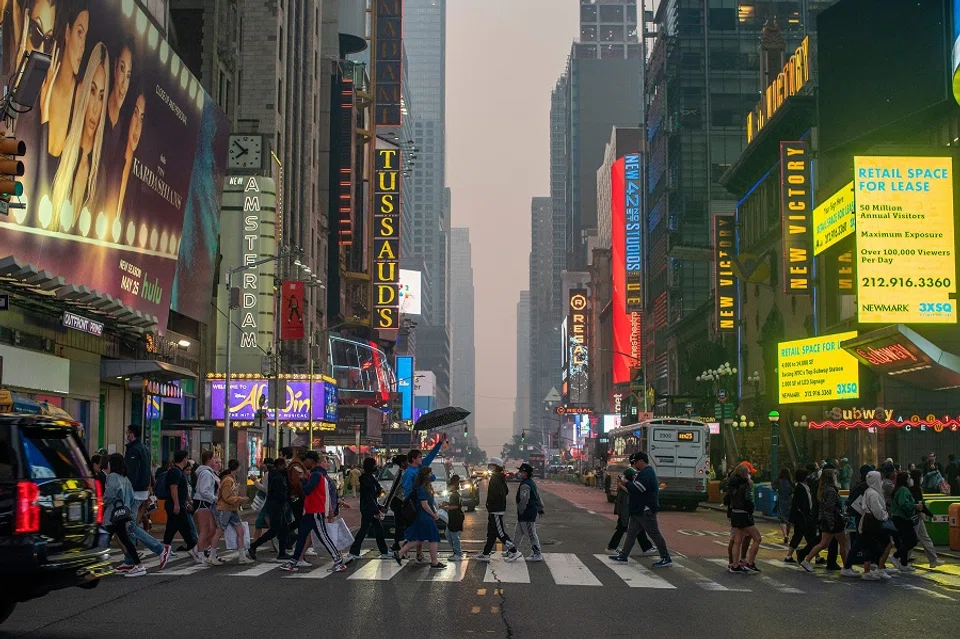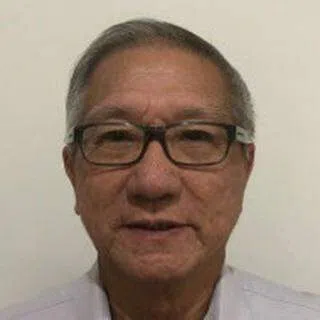China and US: Who is the ticking time bomb?
US President Joe Biden raised hackles with his recent comment about China being a "ticking time bomb", alongside observations about its economy and unemployment rate. Former journalist Goh Choon Kang examines the question of who is more likely to be a time bomb, and highlights that it serves no purpose for the US and China to be pointing fingers at each other.

On 10 August, at a political fundraising event in Utah, US President Joe Biden remarked that China's economic growth was slowing down, unemployment rates were high, and the population of retirees had exceeded the working-age population.
He expressed concern that the second largest economy in the world could become a "ticking time bomb" that might threaten other regions around the world. He added, "They have got some problems. That's not good because when bad folks have problems, they do bad things."
The swift hound and sly rabbit
Biden also described China's Belt and Road Initiative (BRI) as a "debt and noose", suggesting that participating countries must accept certain terms to receive funding. Now, besides "debt trap", Western vocabulary has a new descriptor for the BRI.
China is not only seen as a unique strategic rival but also as "bad folk". Not to forget that on 20 June, Biden also referred to Chinese President Xi Jinping as a "dictator" during a fundraising event in California.
While it may be true that Beijing is taking it in silence for strategic reasons, it is definitely gnashing its teeth in private.

Some say Biden is slightly senile, which often makes him incoherent and forgetful of diplomatic etiquette. There are also those who say he is a seasoned diplomat and strategist, a stalwart of US politics whose verbal provocations are not gaffes but intentional, and against whom China currently appears powerless. While it may be true that Beijing is taking it in silence for strategic reasons, it is definitely gnashing its teeth in private.
Social liberalism and conservative hawkishness are on top in the US now. Since taking office, Biden has been reshaping relationships with allies. Amid Russia's invasion of Ukraine, he seems adept in foreign policy, confronting Putin while containing China, appearing to gain diplomatic and strategic success on both fronts, which has got him a little smug in being dismissive of Xi Jinping.
However, it is dangerous to underestimate one's opponent, a reminder of the fable in the Annals of the Warring States (《战国策》) about a hound chasing a hare.
The tale goes that in ancient China, the swiftest hound in the land chased the slyest hare, making five rounds across three mountains before both animals eventually collapsed and died, and a passing farmer picked them up.
The US now is smug like the arrogant hound, thinking that it is unbeatable. But when two skilled experts meet, underestimating the opponent is perhaps the most dangerous mindset.
The US has dropped the pragmatism of the Kissinger era and reverted to ideology-driven foreign policy, assuming that American democracy can conquer the world, and any issue can be resolved with its military might - but military aggression is equally dangerous.
Biden has not only inherited former US President Donald Trump's China policy, but has ramped up containment efforts, enacting various restrictive measures in an attempt to curb China's development and destroy it. However, the hawks in Washington still seem to feel that Biden is not doing enough.
Let China fail
In a recent article in Foreign Affairs, academics Oren Cass and Gabriela Rodriguez from think tank American Compass asserted that de-risking is not enough. They argue that the Chinese Communist Party undermines America's free market and institutions through investment and supply chains.

They propose a "hard break" with China as it has done with Russia, revoking China's Most Favored Nation status and imposing tariffs on Chinese imports. Simultaneously, the US should establish broader partnerships with like-minded allies. In short, it advocates a hound-like mentality of going tough on China.
The worldview of the US hawks is based on its unrivalled military power and arsenal, coupled with a stereotypical view of authoritarian systems. There is a school of thinking that claims China's economy is currently experiencing "economic long Covid"; as a result of the government's aggressive intervention, the economy has lost its vitality, and the economic miracle has ended.
In contrast, the US seems to offer greener pastures. This gives the US a perfect opportunity to change its strategy, and instead of containing China, make the better choice of letting Xi Jinping do the work while wrecking the economy. The US can then sit back and reap the rewards by becoming the destination for economic assets leaving China. Wouldn't that be less of a hassle?
US also in crisis?
In short, to hound-like Americans, China looks to be easily caught, like a hare at a dead end - or in Biden's words, a ticking time bomb ready to explode. However, the book The Fourth Turning might make us feel that the US is the ticking time bomb instead.
Subsequent events include Trump's election as president in 2016, the sudden outbreak of Covid-19 in 2020, along with rising populist sentiments, political party struggles, loss of trust and government dysfunction - all signs of a crisis era.

The Fourth Turning was published in 1997 by William Strauss and Neil Howe, who proposed the theory of a fourfold cycle in the development of Anglo-American history, with each cycle lasting roughly 80 years. Each cycle contains four turnings: at one extreme is the Awakening, which is analogous to summer, and at the other extreme is the Crisis, which is analogous to winter; the turnings in between are transitional seasons, the High and the Unravelling are similar to spring and autumn respectively. The cycle spans about four generations.
Since the late Middle Ages (1435), there have been six turnings up until the end of the Second World War; the seventh turning began in 1946, which is now in the winter phase or the Crisis stage.
Strauss passed away in 2007, but Howe continued their research and recently published The Fourth Turning Is Here. It suggests that the US is currently in the fourth turning, which began with the 2008 global financial crisis. Subsequent events include Trump's election as president in 2016, the sudden outbreak of Covid-19 in 2020, along with rising populist sentiments, political party struggles, loss of trust and government dysfunction - all signs of a crisis era.
No wonder some Chinese people believe that China is rising while the American hound is running out of steam, i.e. the so-called theory of the rise of China and the decline of the West.
Damage to both sides
But in the writers' view, this is just a cycle of spring to autumn, winter to spring. Since winter has come, can spring be far behind? It seems that more and more Americans are starting to believe in the theory of the four turnings, as many of the "predictions" about this winter in The Fourth Turning seem to have come true. Some Chinese readers might even be convinced that the US has become a ticking time bomb.
... both China and the US have serious domestic issues that need urgent attention...

So it looks like no one can say for sure who the time bomb is. For us outsiders, first of all, both China and the US have serious domestic issues that need urgent attention, such as weak economies, high unemployment, stagnant investment, racial tensions, wealth disparity, political strife and societal divisions, any of which are time bombs if not handled properly.
Second, whose system is better is not about self-praise, mutual derision, military confrontation, or forcing the other system to change. In the end, only time will decide.
And before that, rather than engage in tussling that will hurt both sides, or making more powerful weapons, each should focus on their domestic affairs and resolve complex political, economic and social problems, and channel valuable resources to improving people's lives.
Third, if the US and China go all in and keep fighting and chasing each other around the mountains like the hound and the hare, both will get hurt. However, unlike in the fable where the farmer picks up the two carcasses, or the other fable from Annals of the Warring States where a fisherman benefits from the stubborn tussling between a clam and a snipe, the farmer and fisherman do not exist in real life. A wounded US and China would harm the global order and economy.
This article was first published in Lianhe Zaobao as "谁是"定时炸弹"?".
Related: US sets up strategic obstacles against 'autocratic' China | Biden's Asia tour: US deepening its commitments to counter China | Strategic Competition Act: The US targeting China through Cold War politics? | How China might just win the China-US competition of governance systems | China gearing up for intense competition in the Pacific





![[Photos] Fact versus fiction: The portrayal of WWII anti-Japanese martyrs in Taiwan](https://cassette.sphdigital.com.sg/image/thinkchina/3494f8bd481870f7c65b881fd21a3fd733f573f23232376e39c532a2c7593cbc)